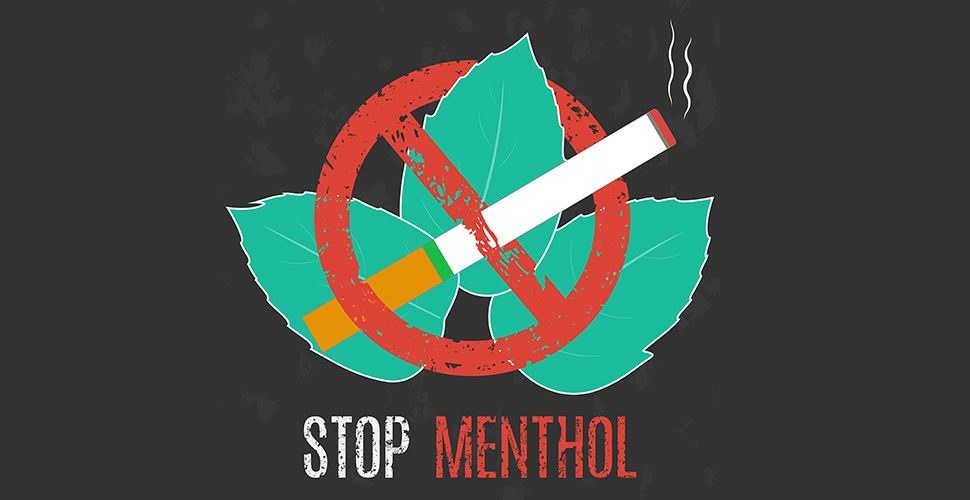“FDA weighs ban on menthol cigarettes, which disproportionately addict—and kill—Black Americans”
“Biden may lower nicotine in cigarettes. Wait, is that even possible?”
You’ve likely seen these recent headlines and others. If you’re wondering what this means for employers or health plans interested in helping people overcome nicotine addiction, here’s what you need to know.
Taking menthol cigarettes off the shelves could help Black communities
The Food and Drug Administration has been urged to remove menthol cigarettes for years. And now, after being sued for inaction on this issue, the FDA has responded to a 2013 citizens’ petition—a unique regulatory tool that allows the public to request that the FDA considers policy changes.
On April 29, the FDA reported to the courts that it plans to move forward to remove menthol from cigarettes and all flavors, including menthol, from cigars. The FDA indicated that it would issue product standards to remove menthol within the year. This is a landmark decision that has the potential to save hundreds of thousands of lives—many of them African Americans, who use menthol cigarettes at high rates.
Menthol reduces the harshness of cigarette smoke due to its characteristic cooling effects on the mouth and throat. It also suppresses the coughing reflex, which makes inhaling smoke from cigarettes more tolerable.
Once addicted, menthol tobacco users find it more difficult to quit than those who use non-menthol products. Adult menthol smokers show greater signs of nicotine dependence, with higher rates of relapse when they do try to quit. However, many menthol smokers indicate that they would quit smoking altogether if menthol cigarettes were no longer available.
Civil rights organizations and African American health groups ramped up pressure on the federal government to get rid of menthol cigarettes, accusing it of inaction on the issue. These groups want to remove menthol from cigarettes because menthol has created a huge health inequity caused by the tobacco industry that strategically and aggressively targeted the Black community with menthol cigarettes.
Important takeaway on removing menthol cigarettes: Policy changes such as taking menthol cigarettes off the shelves can spur smokers to make a quit attempt. When menthol smokers can’t access their favorite tobacco, it’s a valuable window to prompt quit-smoking efforts—before they switch to another tobacco product.
Offering an easy-access, evidence-based program can help menthol tobacco users overcome their addiction to nicotine for good. Offering cessation services now gets your population healthy and ready for these policy changes.
Reduced-nicotine cigarettes won’t make cigarettes harmless
The Biden administration is also considering requiring tobacco companies to lower nicotine levels of all cigarettes sold in the U.S. to levels where they are no longer addictive.
Nicotine itself doesn’t cause cancer, heart disease or lung disease—the major causes of more than 540,000 smoking-related deaths each year. It’s the deadly chemicals in in tobacco smoke that are directly responsible for these health effects and others. But it’s nicotine that hooks people on cigarettes and makes it so hard to quit.
Truth Initiative supports the concept of reducing nicotine in cigarettes to non-addictive levels and urges the agency to reduce nicotine on all combustible tobacco products, not just cigarettes.
Important takeaway on nicotine-reduced cigarettes: The journey to limit nicotine levels will be a long one and if passed, it is likely to stew in litigation for years to come. Employers and health plans simply can’t afford to sit idle and wait for this potential change to occur.
Today, over 34 million American adults smoke cigarettes. Even if the FDA reduces nicotine, people who smoke will need support to break this tenacious addiction. There will still be other tobacco nicotine products such as cigars, smokeless tobacco, and e-cigarettes that smokers could switch to, or use in conjunction with cigarettes, so it’s better to ensure they have access to the tools they need now to quit nicotine for good.
In fact, a Truth Initiative study, published in Drug and Alcohol Dependence in December 2019, surveyed adult smokers to determine how likely they would be to engage in certain behaviors if cigarettes with reduced nicotine levels were the only kind sold.
The results: 78% reported that they would continue smoking low-nicotine cigarettes, 47% said that they would use e-cigarettes, 35% indicated they would illegally buy high-nicotine cigarettes and 30% said they would turn to little cigars and cigarillos.
In short, the support to help people overcome tobacco addiction is still needed. And the benefits of helping people stop smoking will continue to bring both immediate and long-term benefits, in terms of increased productivity, lower healthcare costs, and a healthier work environment without worry of secondhand or thirdhand smoke.
Learn more about why employers and health plans need to continue offering more robust resources in our blog from Chief of Innovations Amanda Graham, Ph.D., “Think Quit-smoking Resources Aren’t Needed? Here’s a Reality Check.”




